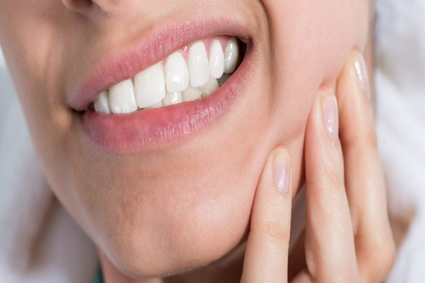
The link between teeth grinding (bruxism) and TMJ (Temporomandibular joint) disorder is often the subject of debate on various forums. Here’re some points that focus on both medical conditions and the link between them.
What’s Bruxism?
Teeth grinding, also known as bruxism, is a medical condition in which an individual clenches his jaw and grinds teeth often while asleep. Occasional grinding may not be a reason to worry. However, it becomes a cause of concern if it starts occurring on a daily basis. Bruxism cannot be ignored because it can trigger other severe oral health issues. Most of the time patient suffering from bruxism does not even know that he or she grinds their teeth while asleep.
Several reasons can trigger bruxism, including sleep apnea, missing teeth, allergy to a specific medication, obstructive sleep apnoea (OSA), smoking, alcohol consumption, anxiety, and stress.
Stiffness in the jaw, sensitive teeth, ear ache, headaches, pain in the temporomandibular joints, and facial pain are some of the symptoms. In most cases, even the patient’s sleeping partner’s sleep gets affected due to the grinding sounds. Ignoring the same may also result in loss of teeth, and tooth fracture which may need extensive treatment such as root canals, crowns, bridges, and other dental procedures. It is advisable that the patient visits a reputed dental office and opts for an oral examination. The dentist would examine the symptoms and suggest treatment options according to the symptoms.
What are the treatment options?
Using custom-made mouth splints or mouth guards while sleeping is crucial to stop further damage. The mouth guard acts just like a barrier between the upper and lower jaw and helps in reducing the grinding noise as well.
Getting a good night’s sleep and relaxation is essential. Having a hot water bath twice or thrice a day, practicing yoga, listening to music, and opting for a regular massage treatment can help in easing stress.
Dental issues caused due to severe bruxism require urgent attention to ensure the damage does not spread further. The patient should also opt for reconstructive dental treatments wherever required. Reshaping the chewing surface may automatically stop grinding as well. Remember, a quick dental checkup is needed even for persons who grind occasionally.
The sports person who indulges in contact sports such as basketball, hockey, soccer, or boxing often uses a sports guard or a mouth guard.
In Acute muscle spasms or TMJ pain dentist might recommend muscle relaxants and non-steroidal anti-inflammatory medicines to heal the damage caused by grinding. Most importantly, giving up smoking, cutting back on alcoholic drinks and avoiding stress-related activities would also help in relieving muscle spasms.
When it comes to the list of Roswell Dental Care experts who offer patient-friendly treatment for bruxism, TruCare Dentistry is one of the best options.
What’s TMJ?
Temporomandibular joints connect the skull with the lower jaw. The joints are located in front of both ears. The TMJ pain results from the inflammation of these two joints. Patients suffering from the same experience pain while chewing food, tenderness of the jaw, ear and neck pain, and headaches in the early morning.
Bruxism is one of the causes of TMJ pain
The TMJ disorder can be caused due to some oral habits, aging linked to wear and tear, trauma, and even due to the impact of a motor vehicle accident.
As mentioned earlier, patients suffering from bruxism often end up with misaligned teeth, excessive use of chewing muscles, and clenching, resulting in oral muscle spasms. This also triggers temporomandibular joint changes causing the TMJ disorder.
Like any other joints, even temporomandibular joints are prone to degeneration of the joint due to aging which slowly results in Osteoarthritis. Some other causes of TMJ disorder are rheumatoid arthritis, bone deformity, and certain types of cancers.
Dental experts recommend x-rays, CT scans, and even MRIs if they suspect TMJ disorder.
Minor TMJ disorders may not even require any medication and may go away with time. Patients suffering from complicated ones experience extreme pain. Thus, the dentist may recommend muscle relaxants, tricyclic antidepressants, and over-the-counter pain medications as well as injections for this medical condition. Plus, exercise to strengthen the jaw muscles and the use of mouth guards is also necessary. The patient may need to undergo arthrocentesis surgery, modified condylotomy (surgical procedure), and even open joint operation in worst cases.
If you are looking for one of the best Roswell Dentists, you should surely consider getting in touch with TruCare Dentistry. The team of dental care experts has several years of experience in helping patients suffering from TMJ pain disorders and teeth grinding.
